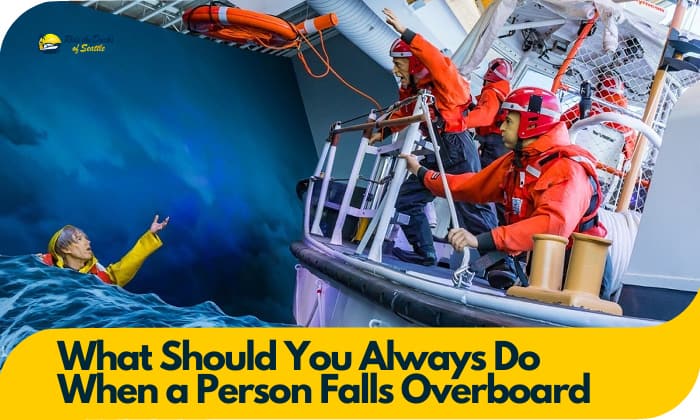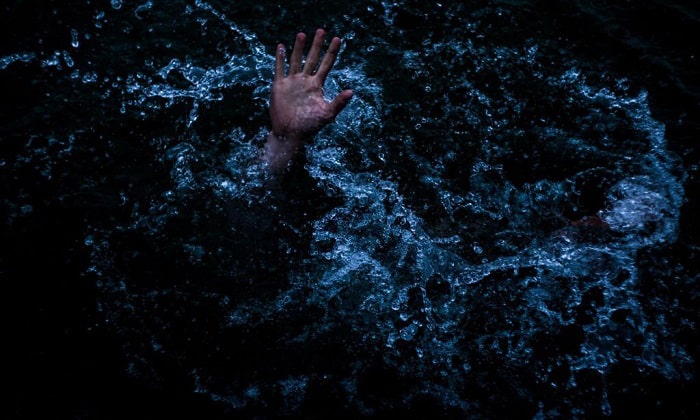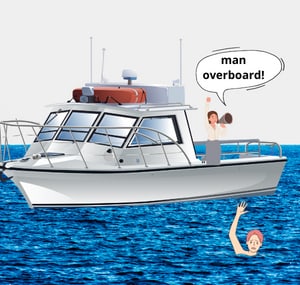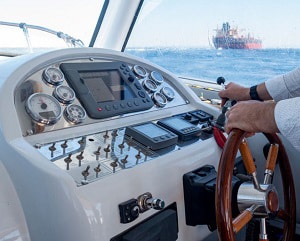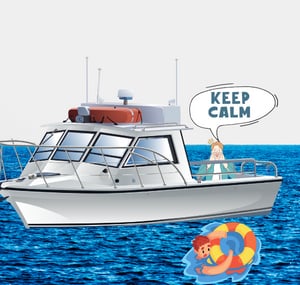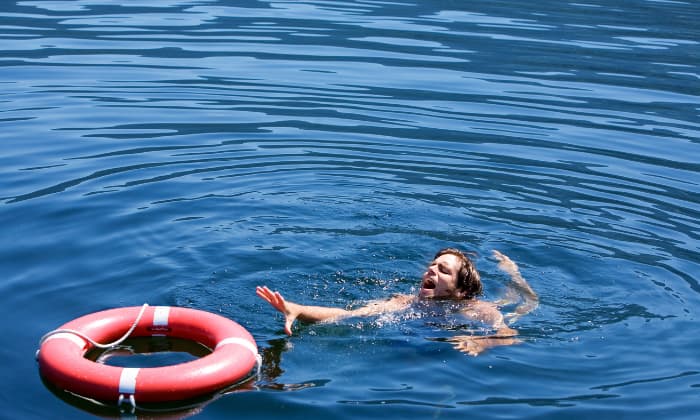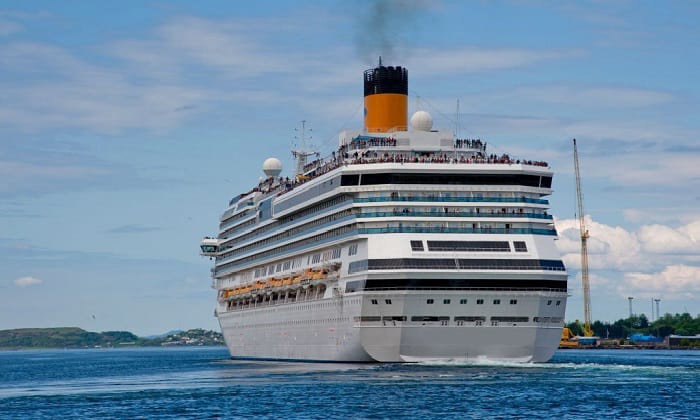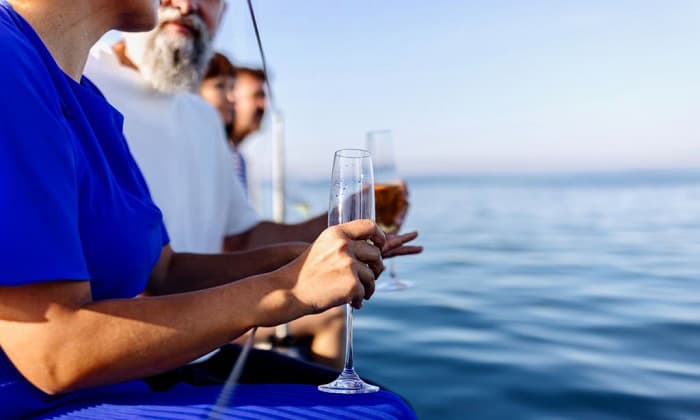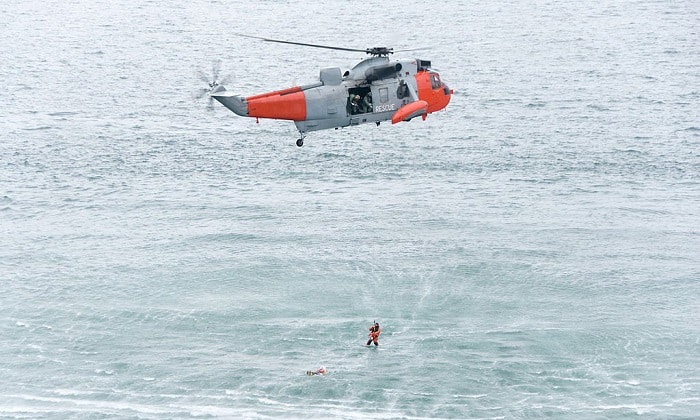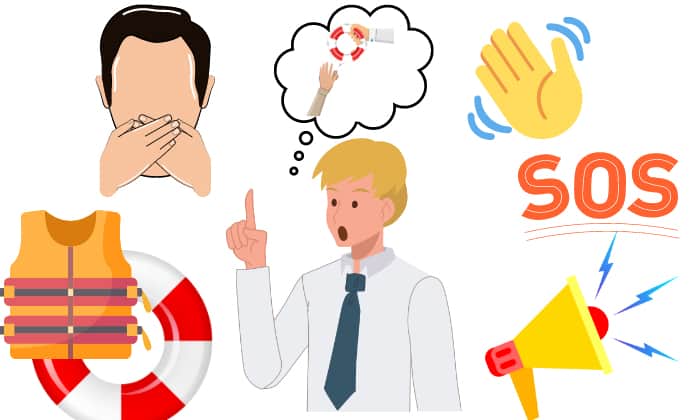Nobody wants to face a “man overboard” scenario, but what should you always do when a person falls overboard? You might want to alert the crew, slow down, throw a personal flotation device to the victim, have someone keep an eye on them, and carefully maneuver your vessel.
Of course, there are many things you can do when a passenger on a small boat (or a large ship) falls into the water. So, please continue reading.
Table of Contents
What You Must Always Do When Someone Falls Overboard
In 2017, the US Coast Guard reported 306 people fell overboard, leading to 179 deaths. This further highlights how important it is for boat crews and skippers to know proper safety protocols to improve a victim’s chances of survival.
So, what action should the skipper take in a man-overboard situation?
1. Alert the crew
As soon as someone falls overboard, your first responsibility is to immediately alert everyone else to the emergency by yelling, “man overboard!”
Shout at the top of your lungs without instilling fear and panic in the crew. This will also help the victim know you’ve spotted them and rescue is near, thus relieving their anxiety.
2. Slow down
The proper method for responding to a man-overboard situation is to slow down your vessel and kill the engine. You do not want to add insult to injury by risking harming the victim with a propeller. Adjust the sail to reduce speed if you are piloting a sailing vessel.
If your boat has a man-overboard (MOB) button, press it immediately to activate the GPS marker and allow search and rescue units to come to your aid. This safety feature is crucial in rough waters because high waves can make visualization challenging.
Check if the victim has a personal flotation device (i.e., a life jacket). If not, throw them one, along with a life ring, to help them stay afloat. It will also help mark the victim’s spot should they go under the water.
3. Keep an eye on the victim
Assign a crew to maintain visual contact with the victim in the water. When someone falls overboard, they might be disoriented or not know how to stay afloat, even with a life jacket. Having someone keeping an eye on the victims can help improve rescue.
Have other crews look for other boats within the accident site. They should radio for help or send distress signals to other boaters for further assistance or to ensure other vessels won’t unknowingly run into the victim.
4. Maneuver your boat
Did you know some MOB fatalities are due to propeller-related accidents? So please be patient and cautious in turning your boat around—the last you want is the MOB victim getting propeller injuries.
Maneuver your boat downwind, relying on natural waves and wind action to bring the vessel closer to the MOB victim. Once you are close enough, you can switch off the engine.
5. Assist the victim into your vessel
Resist the temptation to jump into the water. Forget Hollywood films where the immediate reaction is to jump right in, swim toward the victim, and pull them to safety unless you are a certified rescue swimmer. This action is your last resort.
Secure a boarding ladder on the side of your boat and pull the MOB victim towards it using the life ring you threw earlier.
If your vessel is too small, you can maneuver your watercraft to pull the victim from the water, over the stern (rear), and into your boat. Avoid pulling them from the side, as it may throw the vessel off-balance and overturn it.
Be cautious when pulling the MOB victim off the water because you do not want to fall overboard yourself. Lower your center of gravity to make the task safer and more efficient.
If you have a crew, work as a team to pull the victim into your boat. You might want to reach an unconscious MOB victim to put a sling around the torso or under the armpits.
6. Render aid, as necessary
Hypothermia is the number one concern if you fall overboard into cold water, accounting for 20 to 90 percent of all man-overboard fatalities. Try to keep the victim’s body temperature above 82℉; any lower will result in cardiorespiratory failure and potentially cardiac arrest.
Knowing how dire the situation is, time is crucial. You must remove the MOB victim’s wet clothing and cover them with a thick blanket to conserve body heat. Use a thermal blanket if you have one.
Perform cardiopulmonary resuscitation if the MOB victim is unconscious. Contact the US Coast Guard on VHF Channel 16 if the victim requires medical attention. Say, “mayday, mayday, mayday,” and provide them with an accurate description of the emergency.
Calling the US Coast Guard is also a must when you cannot locate the MOB victim in the water because of strong winds or high waves.
A group of people might also have an accident while boating, with the vessel at risk of capsizing. Too many victims in the water need more resources than a single rescue vessel. The Coast Guard can help.
What if the Person is Too Far Away?
Throw a life ring, life jacket, or any buoyant object to the person in the water. This will give the victim something to latch onto, calm their nerves, and help you keep track of their position.
If the victim is so far away that any thrown item can’t reach them, maneuver your vessel near the victim and get them to safety. Ensure to approach the victim in the water from your side and kill the engine. You do not want to injure the victim with your propellers.
Once the victim is within reach, throw the buoyant item.
What if the Person Fell From a Large Ship?
Cruise liners and cargo ships are massive, making passengers and crew look like ants in an immense floating vessel.
If the person falls overboard from a large vessel, the actions are similar to the ones outlined above. However, the most crucial thing here is to keep track of the victim’s location in the water, which can be very challenging in open and rough seas. It is worse at night against pitch-black water.
Moreover, maneuvering a cruise liner towards the victim is not as easy as turning a small boat. In most cases, the large ship must launch a man-overboard boat to rescue the victim from the water.
Time is critical when someone goes overboard from a large vessel. All crew must train their eyes on the water to look for the victim immediately after sounding the MOB.
The Reason for Falling Overboard
Reasons exist why someone keep falling overboard, such as the following.
Intoxicating substances can impair a person’s judgment and sense of balance. Alcohol and similar products reduce peripheral vision, delay reaction times, and impair night vision. These alcohol effects can increase the risk of falling from a boat and into the water.
- Overspeeding
Boats with planing hulls can reach a top speed of 59 miles per hour. On the other hand, cruise liners have an average velocity of 23 MPH, peaking at 34.5 MPH. Losing balance is highly likely when a boat goes uber fast.
- Rough waters
Just because you are in a lake does not mean you will never worry about choppy waters. For example, waves in Lake Michigan reach four to eight feet, peaking at 22 feet in severe winter storms. Now imagine you are in the open Atlantic or Pacific. It is easy to lose balance in rough waters.
- Medical conditions
Passengers with diabetes, stroke, heart disease, and health problems associated with blood vessels, nerves, eyes, and thyroid glands are at risk for postural imbalances.
- Unsafe boat conditions
Boat clutter, slack cables, and unmanaged vessel components (i.e., sails) can also cause someone to fall into the water.
Tips to Prevent Person From Falling Overboard
The following pointers should help reduce the risk of falling overboard.
- Request passengers and crew to board the vessel one at a time.
- Ensure a clean and organized deck, managing potential fall hazards.
- Help passengers to maintain three points of contact all the time. They must keep both feet on a solid surface, and one hand should hold onto a sturdy object (i.e., railing).
- Ensure everyone has and knows how to use a life jacket and other safety devices.
- Install anti-slip tape on the deck to improve stability when walking. You can also advise passengers to wear boat shoes.
- Avoid serving alcohol onboard. If you must drink alcoholic beverages, it will be wise to party onshore and wait several hours before resuming your voyage.
- Stay updated with the weather and postpone your trip if you anticipate rough waters.
- Request passengers to stay seated when the boat is underway, especially in swells and turbulent waters.
- Wear safety harnesses to improve survival in case of falling overboard, especially when used with a life jacket.
If I’m the One Who Falls Overboard
You already know how to respond to someone falling overboard from a ship or boat. But what if it was you who fell overboard? Here are some tips to remember.
- Muster your inner Zen to calm the nerves. Conserve your energy because you will never know when help will arrive.
- Use one hand to cover your mouth to avoid taking in water when gasping as a natural reaction to cold water.
- Try to make noise and wave your hands when you spot a boater nearby.
- Remove bulky clothing and accessories to keep your body as light as possible and avoid sinking.
- Resist the temptation to swim to improve other boaters’ chances of locating you in your “last known location.” This will also help you preserve your energy.
- Improvise a personal flotation device if you do not have a life jacket. Turning your pants or shirt into a “balloon” should help you stay afloat until help arrives.
Conclusion
Knowing what should you always do when a person falls overboard is every boat skipper’s and crew’s responsibility. You must alert everyone about the emergency, slow down, maintain visual contact with the man-overboard victim, and carefully maneuver your vessel.
Only then can you help the victim onto your boat and render first aid or other forms of assistance. In most cases, contacting the US Coast Guard can help in the rescue.

Ten years of enjoying countless trips on boats never made me love them any less! So I am here to put all those experiences into good use for other boaters who want to have a safe and fun trip with their friends and families.

